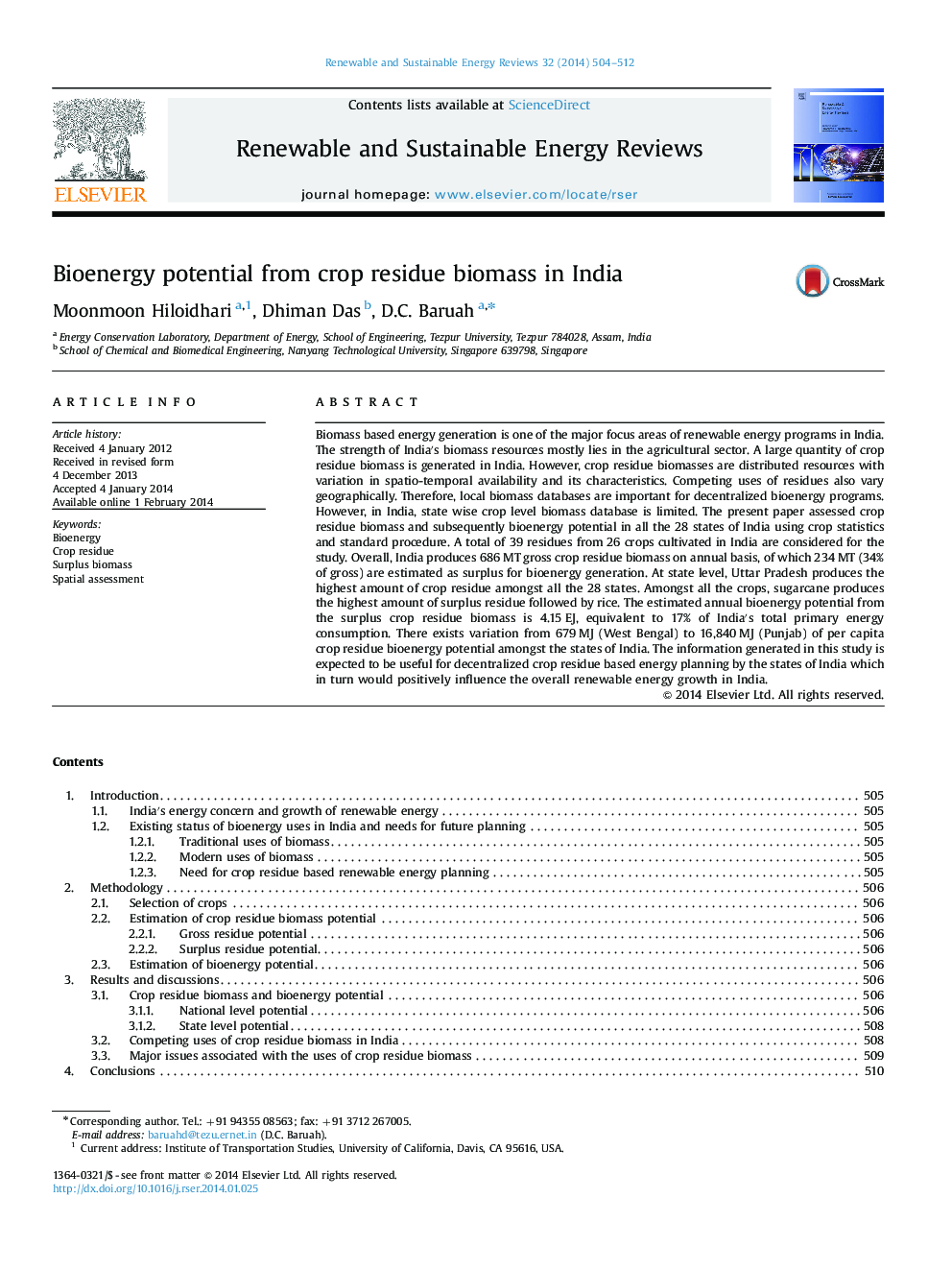| کد مقاله | کد نشریه | سال انتشار | مقاله انگلیسی | نسخه تمام متن |
|---|---|---|---|---|
| 8120285 | 1522353 | 2014 | 9 صفحه PDF | دانلود رایگان |
عنوان انگلیسی مقاله ISI
Bioenergy potential from crop residue biomass in India
ترجمه فارسی عنوان
پتانسیل بیو انرژی از زیست توده باقیمانده محصول در هند
دانلود مقاله + سفارش ترجمه
دانلود مقاله ISI انگلیسی
رایگان برای ایرانیان
کلمات کلیدی
بیو انرژی، بقایای محصول، بیوماس اضافی ارزیابی فضایی،
موضوعات مرتبط
مهندسی و علوم پایه
مهندسی انرژی
انرژی های تجدید پذیر، توسعه پایدار و محیط زیست
چکیده انگلیسی
Biomass based energy generation is one of the major focus areas of renewable energy programs in India. The strength of India's biomass resources mostly lies in the agricultural sector. A large quantity of crop residue biomass is generated in India. However, crop residue biomasses are distributed resources with variation in spatio-temporal availability and its characteristics. Competing uses of residues also vary geographically. Therefore, local biomass databases are important for decentralized bioenergy programs. However, in India, state wise crop level biomass database is limited. The present paper assessed crop residue biomass and subsequently bioenergy potential in all the 28 states of India using crop statistics and standard procedure. A total of 39 residues from 26 crops cultivated in India are considered for the study. Overall, India produces 686Â MT gross crop residue biomass on annual basis, of which 234Â MT (34% of gross) are estimated as surplus for bioenergy generation. At state level, Uttar Pradesh produces the highest amount of crop residue amongst all the 28 states. Amongst all the crops, sugarcane produces the highest amount of surplus residue followed by rice. The estimated annual bioenergy potential from the surplus crop residue biomass is 4.15Â EJ, equivalent to 17% of India's total primary energy consumption. There exists variation from 679Â MJ (West Bengal) to 16,840Â MJ (Punjab) of per capita crop residue bioenergy potential amongst the states of India. The information generated in this study is expected to be useful for decentralized crop residue based energy planning by the states of India which in turn would positively influence the overall renewable energy growth in India.
ناشر
Database: Elsevier - ScienceDirect (ساینس دایرکت)
Journal: Renewable and Sustainable Energy Reviews - Volume 32, April 2014, Pages 504-512
Journal: Renewable and Sustainable Energy Reviews - Volume 32, April 2014, Pages 504-512
نویسندگان
Moonmoon Hiloidhari, Dhiman Das, D.C. Baruah,
